|
|
January
9,
2007
ABSOLUTE
WILSON
An
interview
with Katharina
Otto-Bernstein,
director
of
the
documentary Absolute
Wilson.
As
a
collaborator
with
America's
underground
icons,
Philip
Glass,
Tom
Waits
and
Williams
S.
Burroughs,
Robert
Wilson
wowed
the
theater
world
with
innovative
spectacles
that
sometimes
lasted
as
long
as
a
week.
His
choreographic
work
and
revolutionary
approach
to
visual
story-telling
include
the
theatrical
sensations Einstein
on
the
Beach,
Deafman
Glance and The
CIVIL
WarS.
Katharina
Otto-Bernstein
spent
five
years
following
Wilson
around
the
world
with
her
camera.
She
has
a
distinguished
career
as
a
filmaker
with
credits
that
include Coming
Home, a
documentary
she
made
in
Berlin
about
reuniting
families, The
Second
Greatest
Story
Ever
Told, a
comedy
with
Miro
Sorvino
and
Malcolm
McDowell, The
Need
for
Speed, the
story
of
hard-core
bicycle
messengers
in
New
York
City,
and When
Night
Falls
Over
Moscow, a
German
television
production
about
the
illegal
arms
trade.
Otto-Bernstein's Beautopia:
The
Dark
Side
of
Modeling was
was
the
hit
of
the
1998
Chicago
and
Sundance
Film
Festivals.

December
26,
2006
THE
NEWPORT
BEACH
FILM
FESTIVAL
An
interview
with Gregg
Schwenk,
executive
director
of
the Newport
Beach
Film
Festival.
In
2007,
the
Festival
will
spotlight
over
350
films
from
around
the
world
including
features,
shorts,
documentaries,
and
animation
that
will
compete
for
a
series
of
awards
including
Jury
Awards
and
Audience
Awards.
In
addition
to
film
screenings,
the
Festival
will
host
several
premiere
galas,
yacht
parties,
and
question
and
answer
sessions
with
filmmakers.
The
Festival runs
from
April
19th
through
April
29th,
2007.
The
event
is
expected
to
attract
more
than
35,000
film
devotees.

December
19,
2006
THE
DEAN
OF
AMERICAN
DOCUMENTARIES
An interview with Frederick
Wiseman — award-winning producer of thirty feature length
films. One of the greatest living documentary filmmakers, Wiseman is noted
for his ability to capture the nuances of life in American institutions such
as
prisons, hospitals, welfare offices, and high schools. He started out in 1963
by producing a fictional feature film, The
Cool World, an examination of the lives of Harlem teenagers. Titicut
Follies, his first documentary, is an exposé of life
in a prison for the criminally insane. His four subsequent documentaries were
all exposés of other tax-supported institutions designed to show the
ineffectiveness of the bureaucracy that not only threatens to destroy them,
but also dehumanizes the people they were meant to serve. His films are never
narrated, allowing viewers to make connections between the sequences themselves. “Documentaries,
like theatre pieces, novels or poems are forms of fiction,” claims Wiseman.

December
12,
2006
THE TRIALS
OF DARRYL HUNT
An
interview with Annie
Sundberg and Ricki
Stern producers
and directors of The
Trials of Darryl Hunt — a
documentary about a brutal rape/murder
in the American South, that offers
a deeply personal story of a
wrongfully convicted man, Darryl
Hunt, who spent twenty years
in prison for a crime he did
not commit. Base on an ID made
by a former Klan member, a 19-year-old
black man, Darryl Hunt, was charged.
No physical evidence linked Hunt
to the crime. Hunt was convicted
by an all white jury, and sentenced
to life imprisonment. In 1994,
DNA testing cleared Hunt, yet
he would spend another ten years
behind bars. Winner of more than
a dozen Film Festival awards, The
Trials of Darryl Hunt is
among 15 films in the Documentary
Feature category that will advance
in the voting process for the
79th Academy Awards®. Eighty-one
pictures had originally qualified
in the category.

December
5,
2006
WHO
NEEDS SLEEP?
A conversation with Academy Award-winning cinematographer, Haskell
Wexler. Judged to be one of film history's ten most influential
cinematographers in a survey of the members of the International Cinematographers
Guild, Wexler has directed only a handful of movies, but among them was the
influential Medium
Cool, a film written by Wexler and shot in the cinéma
vérité style. It incorporated riot footage from the 1968 Democratic
National Convention. Wexler's film credits include Who's Afraid of Virginia
Woolf?, Bound for Glory, Matewan, In the Heat of the Night,
The Thomas Crown Affair, Coming Home, Three Fugitives, The Secret of Roan
Inish, and Silver City. His latest documentary, Who
Needs Sleep?, shows how sleep deprivation and
long work hours are a lethal combination.å

SCREENWRITING 101
A discussion with screenwriter Tim
Albaugh M.F.A., the recipient of the Jack Nicholson and William
Froug Screenwriting Awards, UCLA Graduate Program in Film and Television.
Albaugh wrote the film Trading
Favors, starring Rosanna Arquette, Devon Gummersall and
Cuba Gooding, Jr. Along with his producing partner, Sean Sorensen, Albaugh
has various projects in development under their Popular Films banner. His
students have sold scripts to numerous producers and production companies
including John Cusack’s New Crime Productions; The Coen Brothers, Michael
Bay, Wendy Finerman, Nickelodeon Gough/Millar and all the major studios and
television networks. The latest film written in one of Mr. Albaugh’s
classes was The Machinist, written by Scott Kosar and starring Christian
Bale and Jennifer Jason Leigh. Mr. Albaugh was awarded the 2005 Dean’s
Outstanding Service Award at UC Irvine Extension.

November
28, 2006
FRISBEE:
THE LIFE AND DEATH OF A HIPPIE PREACHER
Documentarian David
Di Sabatino discusses his film Frisbee:
The Life and Death of a Hippie Peacher.
Lonnie Frisbee was a young hippie seeker
fully immersed in the 1960s counter culture
when he dropped acid, ran into God and became
an itinerant Christian evangelist — a
John the Baptist of Southern California who
compelled thousands of fellow spiritual seekers
to make a profession of faith in Jesus. Frisbee
provided the charismatic spark that launched
the Calvary Chapel church into a worldwide
ministry and propelled many fledgling leaders
into some of the most powerful movers and
shakers of the evangelical movement. However,
his call into the ministry came while deeply
involved in the Laguna Beach homosexual scene.
Treated with contempt by the ministers whom
he helped establish, Lonnie has been written
out of their collective histories . . . until
now.

FOR
YOUR CONSIDERATION
Bob
Balaban talks about his work with Christopher Guest
in the new film For
Your Consideration, as well as his work with
director Robert Altman. Playing a succession of bespectacled, soft-spoken,
yet vaguely superior characters, Balaban starred in many films
including Clockwatchers, Pie in the Sky, Best in Show, Altered
States and Catch-22. In 2001, he scored a major critical success
helping create, produce and playing one of the main characters
in Altman's murder-mystery Gosford Park.

November
21, 2006
FLANNEL
PAJAMAS
Director
and writer Jeff
Lipsky discusses his film Flannel
Pajamas — a love story,
a stunning courtship and, later, a reversal
of fortunes where disparate family backgrounds
and religious chasms inform selfishness, naiveté,
and destiny. Lipsky is a 28 year veteran in
the independent film world. Co-founder of both
October Films and Lot 47 Films, Lipsky is prominently
featured in books about Oscar nominated writer/director
Mike Leigh and filmmaker Spike Lee. Among the
more well-known of the 235 films he has shepherded
into the marketplace are My Life as a Dog,
which earned Lasse Hallstrom his first two Academy
Award nominations, Jim Jarmusch’s first
film Stranger Than Paradise, and the
film that introduced actor Gary Oldman to the
world, Sid & Nancy.

SWEET
LAND
Director
and writer Ali
Selim discusses his new film Sweet
Land — a
film following the life of an American immigrant as she buries
her husband Olaf on their Minnesota farm in 1968. We relive her
life story as she tells her grown grandson about how she arrived
from Norway in 1920 as Olaf's postal bride and of the epic obstacles
they overcame in order to marry. Selim has been an advertising
commercial director for the past fifteen years, during which time
he has directed over 850 television commercials, five half-hour
documentaries and several music videos. His script for the film Sweet
Land was the only screenplay selected for the inaugural year
of the Cyngus Emerging Filmmakers Institute and was produced in
2005 starring Alan Cumming, Ned Beatty, and John Heard. The film
was the recipient of the 2005 Audience Award for Best Narrative
Feature Film at the 13th Annual Hamptons International Film Festival.
Ali is currently in production on a feature-length documentary
titled “Trash Dawgs,” which focuses on the history
and problem of garbage in America.

November 14, 2006
IRAQ
IN FRAGMENTS
Director James
Longley discusses his new film Iraq
in Fragments — a documentary of post-war
Iraq in three acts, building a picture of a country pulled in
different directions by religion and ethnicity. Filmed in verité style
with no scripted narration, the film explores the lives of
ordinary Iraqis to illustrate and give background to larger
trends in
Iraqi society. Winner
of Best Director, Best Cinematography and Best Editing awards
in the 2006 Sundance Film Festival documentary competition,
the film was also awarded the Grand Jury Prize at the 2006 Full
Frame Documentary Film Festival.

November
7, 2006
MOST
EXTREME ELIMINATION CHALLENGE
Christopher
Darga, Mary
Scheer and John
Cervenka of the hit Spike TV comedy series Most
Extreme Elimination Challenge (MXC) discuss
their writing and voice over work. A combination of Jackass,
What’s Up Tiger Lily? and Iron Chef, with
a touch of Mystery Science Theater 3000, MXC uses actual
footage from one of the most popular primetime Japanese reality
game shows, Takeshi's
Castle, to create an entirely
new comedy storyline.

UNDOING
Korean-American
Director Chris
Chan Lee — who wrote and directed the critically
acclaimed Yellow in
1998 — discusses his latest film, Undoing,
a neo-noir set in Los Angeles’ Koreatown that explores the emotional,
spiritual, and physical loneliness of disenfranchised beings, and the
irony that such a diverse American city could lead to such solitary
existence. Undoing will
screen as part of the UCI
Film and Video Center's Fall Film Series this Thursday,
November 9 at 7pm. A reception for Lee begins at 6:30 pm.

October
31, 2006
SOUNDS OF HORROR
It's
Halloween and Kelly
Kirshtner of UCI's Visual
Studies Ph.D. Program discusses the sounds that creep
you out — from Dracula to The Exorcist,
from Invasion of the Body Snatchers to Eraserhead.

HALLOWEEN
FILM PICKS
T
R Black interviews horror film reviewer Staci
Layne Wilson about her favorite horror films past
and present.

October
24, 2006
CATCH A FIRE
An
interview with Phillip
Noyce, director of Catch
A Fire — a political thriller about the real-life
story of South African hero Patrick Chamusso's journey to freedom.
Noyce achieved commercial and critical success in 1978 with Newsfront which
won Australian awards for Best Film, Director, and Screenplay. In
1989, Noyce achieved his highest acclaim in the United States with
the thriller Dead
Calm. His greatest commercial success to date was
the Tom Clancy spy thriller Clear
and Present Danger. Noyce also directed Rabbit
Proof Fence, which won the Australian Film Institute
Award for Best Film in 2002.

PAUL
CONRAD: DRAWING FIRE
An
Interview with writer Jeff
Abelson, producer/writer/editor and Barbara
Multer-Wellin, producer/writer/director of the documentary, Paul
Conrad: Drawing Fire — part of PBS's Independent
Lens series. Over the course of his remarkable 50-year
career, political cartoonist Paul Conrad has drawn and quartered
11 American presidents (from Harry S. Truman to George W. Bush)
and fearlessly tackled every major social and political issue the
nation has confronted. An extraordinary artist and journalist,
Conrad epitomizes the fiercely independent voice that has been
vanishing from American news media in recent years. Conrad has
won three Pulitzer Prizes. His favorite distinction, however, is
his 1973 inclusion on Richard Nixon's Enemies List

October
17, 2006
THE
BRIDGE
An
interview with Eric
Steel director of The
Bridge — a documentary
exploration of the mythic beauty of the Golden
Gate Bridge—the most popular suicide destination
in the world—and the troubled souls drawn
by its allure. Inspired by the New Yorker story, Jumpers,
Steel decided to film the Golden Gate Bridge
during daylight hours from two separate locations
for all of 2004, subsequently recording most
of the two dozen deaths in that year (and preventing
a number of others). Steel also captured nearly
100 hours of interviews with the families and
friends of these suicides, with bystanders who
witnessed them, and even a few failed attempters—all
trying to make sense of something at once painfully
and infinitely unknowable.

THE
LOOK OF LAW
Professor Simon
Leung discusses the series of six short videos he
organized for UCI's
Film and Video Center Fall Film Series under the
title The
Look of Law. Chosen from contemporary videos
made mostly by visual
artists who have a peripheral relationship with the
current video/film world, these videos address the affective ramifications
of state and political power using hybrid forms of verbal and
textual narration that owe as much to the history of video art
in galleries as they do to experimental cinema and video. Included
among the contemporary works is a rarely-seen mid-70s work by
Ron Clark, which eerily foreshadows the tone of the American psyche
in a post 9-11 age of homeland (in)security.

October
10, 2006
DELIVER
US FROM EVIL
An interview with Amy
Berg, director of the documentary Deliver
Us From Evil. Moving
from one parish to another in Northern California
during the 1970s, Father Oliver O'Grady quickly
won each congregation's trust and respect. Unbeknownst
to them, O'Grady was a dangerously active pedophile
that Church hierarchy, aware of his predilection,
had harbored for over 30 years, allowing him to
abuse countless children. In Deliver Us From Evil,
filmmaker Amy Berg exposes the deep corruption of
the Catholic Church and the troubled mind of the
man they sheltered.

THE
MOTEL
An interview with director Michael
Kang and producer Gina
Kwon of the film
The
Motel — a coming of age story about
thirteen-year-old Ernest Chin, who lives and works at a
sleazy hourly-rate motel on a strip of desolate suburban
bi-way. The
Motel will screen this Thursday, October
12 as part of UCI's
Film and Video Center Fall Film Series.

October
3, 2006
JESUS CAMP
Directors Heidi
Ewing and Rachel Grady discuss
their new documentary Jesus
Camp which follows evangelical Christian children
at a religious summer camp. The movie, which just opened
in OC, has split the Christian community and horrified
those who fear the ascendance of the religious right on the national
stage. Some web surfers have been so appalled by YouTube
streams of the film that they bombarded the
film's central subject, camp founder Pastor Becky Fischer with hateful
e-mails — prompting her appearance on ABC's Good
Morning America.

THE
FINAL VICTIM OF THE BLACKLIST
Before he attained notoriety as Dean of the Hollywood Ten — the blacklisted
screenwriters and directors persecuted because of their varying ties to the
Communist Party — John
Howard Lawson had become one of the most brilliant, successful,
and intellectual screenwriters on the Hollywood scene in the 1930s and 1940s,
with several hits to his credit including Blockade, Sahara, and Action in
the North Atlantic. Gerald
Horne, author of The
Final Victim of the Blacklist: John Howard Lawson, Dean of the Hollywood
Ten discusses this major figure's rightful place in history
and recounts one of the most captivating episodes in twentieth century cinema
and politics.

September 26, 2006
THE
GROUND TRUTH
Patricia
Foulkrod discussesThe
Ground Truth, her
documentary about
patriotic young Americans who heeded the call for military service
in Iraq. The conflict in Iraq, depicted with ferocious honesty in
the film, is a prelude for the even more challenging battles fought
by the soldiers returning home.

MAN
PUSH CART
Man
Push Cart director Ramin
Bahrani discusses his film's look at a month
in the life of a former Pakistani rock star who now sells
coffee from his push cart on the streets of Manhattan.

|
|
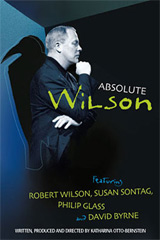
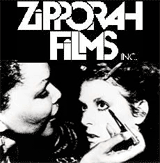
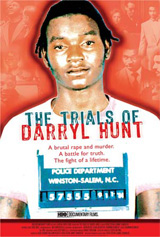
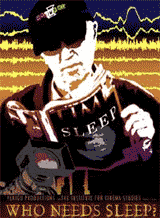
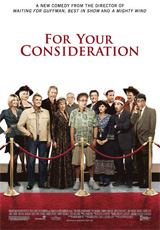
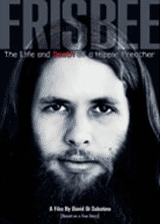
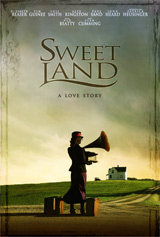
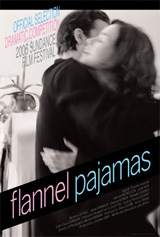
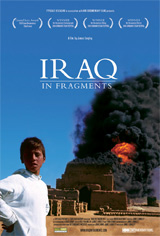

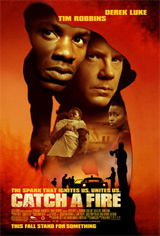
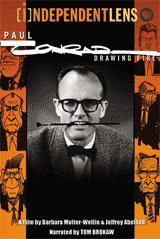
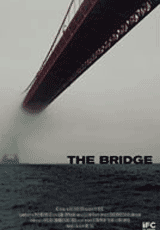
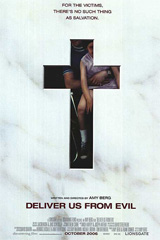
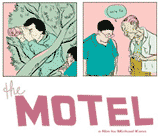
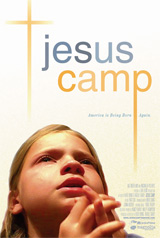
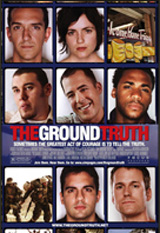
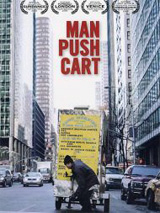
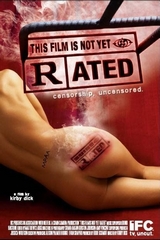
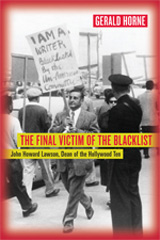
|
|




















